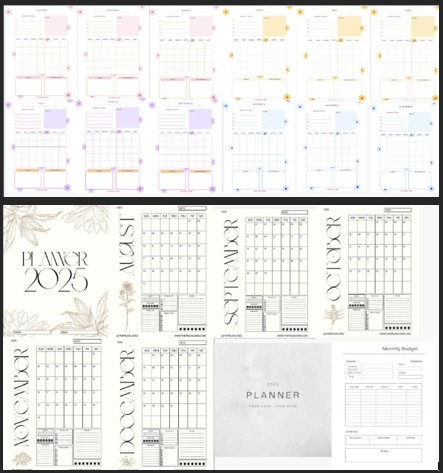Curious about how to work from anywhere, set your own hours, and help people across the globe? Teaching English online has exploded in popularity, with people from all walks of life jumping in. Whether you dream of working from a beachside café or just want flexible, meaningful work, this path can open new doors. Below, you’ll find a straightforward, honest breakdown of what it takes to become an online English teacher, from requirements to finding students and making your first dollar.
Understanding the Role of an Online English Teacher

Online English teacher
An online English teacher’s job is more than just knowing the language. You’ll lead classes using video calls, interactive whiteboards, or chat platforms. It can be 1-on-1 or small group lessons, often focused on practical speaking and listening skills.
Types of students you may teach:
- Children (some as young as three or four)
- University students
- Working adults aiming for language exams (like IELTS or TOEFL)
- Business professionals wanting to improve work-related English
- Casual learners with travel or hobby goals
Class formats can include:
- Conversational English practice
- Grammar or writing help
- Structured exam preparation
- Business English or industry-specific language training
You might find yourself correcting pronunciation for a Korean student one day, then reviewing job interview tips with a Brazilian business manager the next. Flexibility keeps the work interesting.
Meeting the Basic Requirements
Before you start reaching students, check if you meet the baseline requirements. Most online English teaching jobs want you to speak English at a native or advanced level.

Education & technical basics:
- High school diploma or higher (bachelor’s degree preferred, but not always needed)
- 120-hour TEFL/TESOL certificate (explained further below)
- Reliable laptop or desktop computer
- Good quality webcam and headset with a microphone
- Stable, high-speed internet connection
Teaching from home means you’re both teacher and IT support. If your WiFi drops or your microphone only works half the time, you’ll struggle to keep classes going. Test your gear before you start applying.
Obtaining Certification and Training
You don’t need to be a licensed teacher to get hired in this field. Online English employers rarely care about classroom teaching credentials. What really matters is whether you’ve got a solid, recognized teaching English as a foreign language (TEFL) qualification.
Why TEFL is a must:
- Shows you know how to teach, not just speak English
- Proves you understand lesson planning, student feedback, and basic teaching techniques
- Online schools usually list a 120-hour TEFL certificate as their minimum entry requirement
Getting this certificate is completely doable. Most courses are online, self-paced, and affordable (nothing like college tuition). Some, like the 120-hour Let’s TEFL course, even include a module tailored specifically for online teaching skills and application tips—making your resume, intro video, and lesson plans stand out.
If you don’t have a university degree, select programs or platforms that do not require one. Not every online teaching company demands a four-year degree.
How to pick a good TEFL/TESOL course:
- Make sure it’s at least 120 hours to qualify for most jobs.
- Look for online options with good reviews and real support (for example, a personal tutor or detailed feedback).
- Some programs include job placement help or are recognized by big online schools like DaDa or iTutorGroup.
You can add specialist courses (like IELTS or Business English) later to boost your skills and income.

Choosing Your Teaching Platform or Going Freelance
Finding students is the next step. Here you have two broad choices:
- Work with established platforms
- Set yourself up as a freelance teacher
Each approach has trade-offs.
Popular Online English Teaching Platforms
Established online English schools do the heavy lifting for you. You commit to set hours (usually 3-4 per day), and they assign students, supply teaching materials, and handle payments. Think of it as a virtual classroom job.
Two great directories of online English schools:
These sites list pay rates, requirements, and details for hundreds of online schools, making it easier to find your best fit.

How to Set Up as a Freelance Teacher
Freelance teaching puts you in charge. You manage your schedule, rates, and lesson content. This route offers the most flexibility, but you also have to find students and maintain your own business records.
After gaining some experience, many teachers shift from company platforms to freelancing to increase their hourly income.
Flexible Teaching Platforms
Some platforms, known as “marketplaces,” bridge the gap. They let you set up a public teacher profile, pick your rate, and let students choose you. Examples include:
- Italki (currently a hiring freeze, 15% commission)
- Amazing Talker (30%-0% commission, depending on lessons completed)
- Verbling (15% commission)
- Preply (100% commission for first lesson, then 33%-18% after)
- Skimatalk (20% commission)
- Savvy (commission rate varies)
You can set your price, but remember, these sites take a cut of what you earn.
How to Find Students
If you work for an online school, students are assigned to you. If you go through a flexible platform, your teacher profile (photo, intro video, summary) is your storefront.
Tips to stand out:
- Study top-ranking teacher profiles.
- Use a friendly, clear headshot.
- Make your intro video crisp, upbeat, and direct.
- Offer a lower rate when starting, get reviews, then raise your prices over time.
A little hustle at the start pays off. I began at $20 per hour and worked up to $60 per hour in under a year, just by building a solid track record and strong reviews.

Ways to Increase Your Rate
Three proven strategies for raising your rate:
1. Niche Down
Specialize in areas that are in demand. Examples: Business English, IELTS/TOEFL prep, or medical English. I focused on business English and exam training, which let me charge more. Students will pay extra for teachers who help them achieve major milestones like university admissions or job promotions.
2. Provide an Added Service
Extras like homework, feedback, or custom learning plans add value. These can justify a higher rate but keep them efficient so you’re not working unpaid overtime.
3. Convert Students into Private Clients
Long-term, you can move students off platforms (as allowed by the platform’s rules) and teach them privately over Zoom or Skype. No middleman means no commission cuts—just your set rate and direct payment.

Getting Paid
Always request payment upfront unless you know the student well. Most teachers use PayPal, Stripe, or TransferWise/ Revolut for international payments.
Possible Downsides
Working online can feel lonely. There’s no office banter, and you might face miscommunication with some schools. But for most, the freedom outweighs the isolation.
Key Upsides
You can teach from anywhere—coastal towns, mountain villages, your own kitchen. If you live in a place with a low cost of living, your savings can stretch even further.
Extra Insights
- Check each platform’s policies on time-off and pay rates.
- Teach on more than one site if possible—avoid putting all your eggs in one basket.
- Some students might try to get free help through messages. Ask them to book a class instead.
Marketing Yourself and Building a Student Base
Success as an online English teacher is partly about visibility. Here’s how to stack the odds in your favor:
- Optimize your teacher profile: Use lots of keywords relevant to what students are searching for.
- Post short lesson clips or tips on social media.
- Ask satisfied students for reviews and referrals.
- Regularly update your availability and rates.
Nailing the Application, Interview, and Demo Class
Most online schools want you to go through a simple application process—form, resume, short written answers, and a recorded or live demo lesson.
Tips for applications and interviews:
- Keep your resume short, focused on language and teaching skills.
- Write a brief, confident cover letter explaining why you want to teach online and what you offer.
- For demo lessons, prepare and rehearse a sample 10-15 minute class. Use props, slides, or simple drawings if you’re teaching children.
- Speak clearly, avoid slang, and smile! Energy matters.
Recruiters just want to see that you can explain English in a patient, clear way. Even small details—like speaking at a moderate pace or encouraging mistakes as learning moments—can help set you apart.
Best Practices for Successful Online Teaching
Once you’re hired or have landed your first student, it’s time to focus on delivering top-notch lessons.
Key habits of effective online teachers:
- Plan each lesson ahead, with a clear goal and a few backup activities.
- Use free tools: online whiteboards, screen sharing, Google Docs, or interactive quizzes.
- Adjust your speaking pace to match the student’s English level.
- Stay organized: keep detailed student notes, track lesson topics, and set homework if needed.
- Ask for feedback and refine your approach. New teachers can learn a lot from honest student comments.
If you’re working with kids, keep things lively with simple visuals or short games. With adults, connect the content to their real-life needs—whether they’re prepping for a job interview or wanting to travel.
Becoming an online English teacher
Becoming an online English teacher is accessible, rewarding, and full of growth opportunities. All you need is decent tech, a reliable TEFL certificate, and the willingness to put yourself out there—whether with a big platform or as a freelancer. Learn as you go, invest in your skills, and don’t be afraid to start small.
Ready to give it a shot? Take the first step, research your options, and connect with other teachers through forums or Facebook groups like Online English Teaching Jobs & Resources.
There’s a growing global need for English teachers. Start today, and you may surprise yourself at how far this career can take you.














